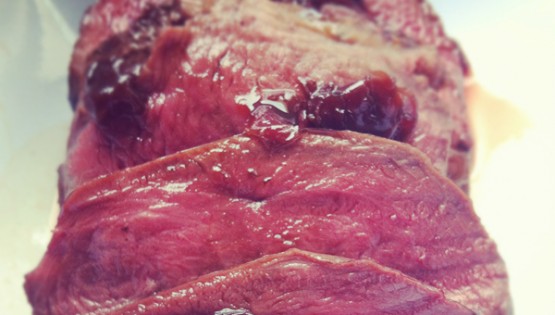
I’d be lying if I said that I wasn’t warned that being married would be hard. No one in the history of man has ever said marriage was a cakewalk, and if they have, they were lying or deluded. Marriage is hard work when the going gets tough. There are two sets of needs that don’t always coincide, two sets of how to get things done that don’t always agree, and two sets of taste buds that don’t always match up.
But you get married anyway because you’ve found someone you love even when you don’t agree, even when you’re both being stubborn mules and even when they won’t eat the things you will. Being a good partner and the only one who knew how to cook, I spent the first year of my marriage making only things my husband liked or at least didn’t despise. There was a long list of things he didn’t really eat and while I and paleoing have broken him in considerably, sometimes he still squirms at the thought of some foods.
Being not only a food lover but an adventurous eater with mild aversions to only pungent goat’s cheese and fiseekh, it drove me nuts to eat at the same restaurants and the same types of food day in and day out. I missed the succulence of chicken thighs roasted to sticky perfection, baked Brie drizzled with clover honey and messy shell-cracking, claw-sucking crab dinners.
So I slowly started to introduce things into my husband’s diet that I thought were sacrilegious not to eat. I started giving him tastes of sweet potato wedges encased in runny yolk, slices of coral salmon generously laced in ridges of fat and falling-off-the-bone tender chicken thighs. I compromised that first year; it was time for him to do the same. And compromise he did.
The day my husband actually began to ask for runny eggs and suggest we go out for sushi was the day I was sure the apocalypse was upon us. But the sky has yet to rain frogs and firstborns have yet to be smote.
One of my more recent attempts to entice my husband to eat something new came in the form of a duck. I’d never eaten an Egyptian duck that wasn’t boiled to within an inch of its life and fried until sufficiently shoe leathery. I longed for some really fatty, pink duck breasts drizzled in a sweet tangy sauce to cut through that richness. So I bought a whole duck, broke it down, saved the legs to try my hand at some confit, boiled the bones for stock and made, for the first time, pan-seared duck breasts.
I knew my husband would never eat a whole duck breast, in fact I knew he wouldn’t try it at all. I made it when my husband was away and tried to whet his appetite with a photograph.
“Look what I made!” I wrote in a text message with an image attached.
“It looks amazing. What is it?” he asked.
“Duck! Don’t you just want to dive in?”
“If I ate duck that would be the one I’d eat,” he responded.
I guess that’s a good a compromise.
Duck With Orange Sauce
Serves: 2
Ingredients
2 duck breasts with the skin on
½ tablespoon ghee, ½ tablespoon olive or healthy cooking fat of choice
Salt and pepper to taste
Splash of white wine vinegar
Zest and juice of half an orange
½ cup of duck stock (chicken stock or water should work)
Instructions
1. Score the skin and fat of the duck breast with a sharp knife, making sure not to pierce the meat. If your breasts don’t have a good yellow layer of fat, then you’ll need to use that butter and oil. Season the breasts well on both sides.
2. Stuart the duck in a cold pan skin-side down if the breasts are fatty enough and let them cook on a gentle heat for about 10 minutes on one side until the fat renders. Occasionally spoon fat over the other side. If your duck is lean, let the butter and oil heat up on medium heat and add your breasts. Cook for the same length of time and spoon fat over the breasts as they cook.
3. Flip and cook for another five minutes. The skin should be crisp and golden and the internal temperature at around 125 F (51.6 C) so that residual heat off the pan takes it up to about 140 F (60 C) for a pink inside.
4. Remove from the heat and let rest covered in foil while you make the sauce.
5. Remove all but a tablespoon of fat from the pan and turn up the heat.
6. Deglaze with white wine vinegar.
7. Add in the zest and juice of the orange and stock or water. Cook until you reach your desired consistency, or about when reduced by half.
8. Slice your duck breast and drizzle with sauce. Serve, ideally, with potatoes roasted in duck fat.


